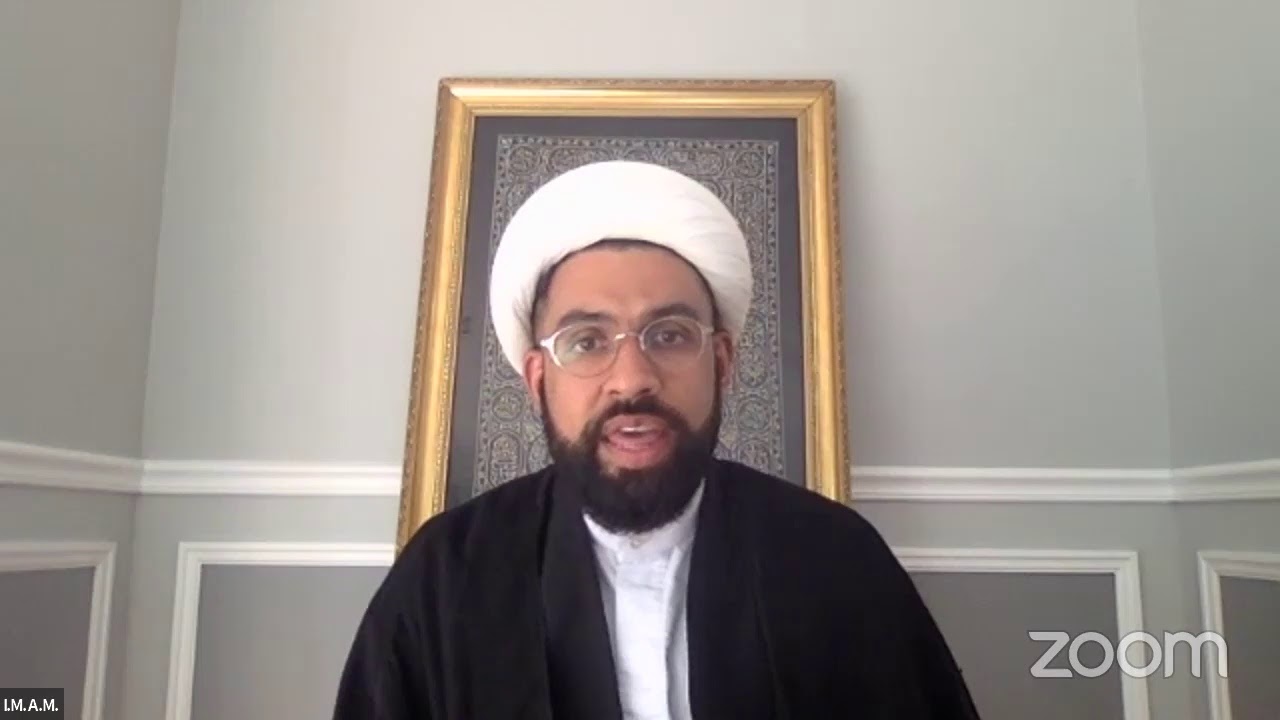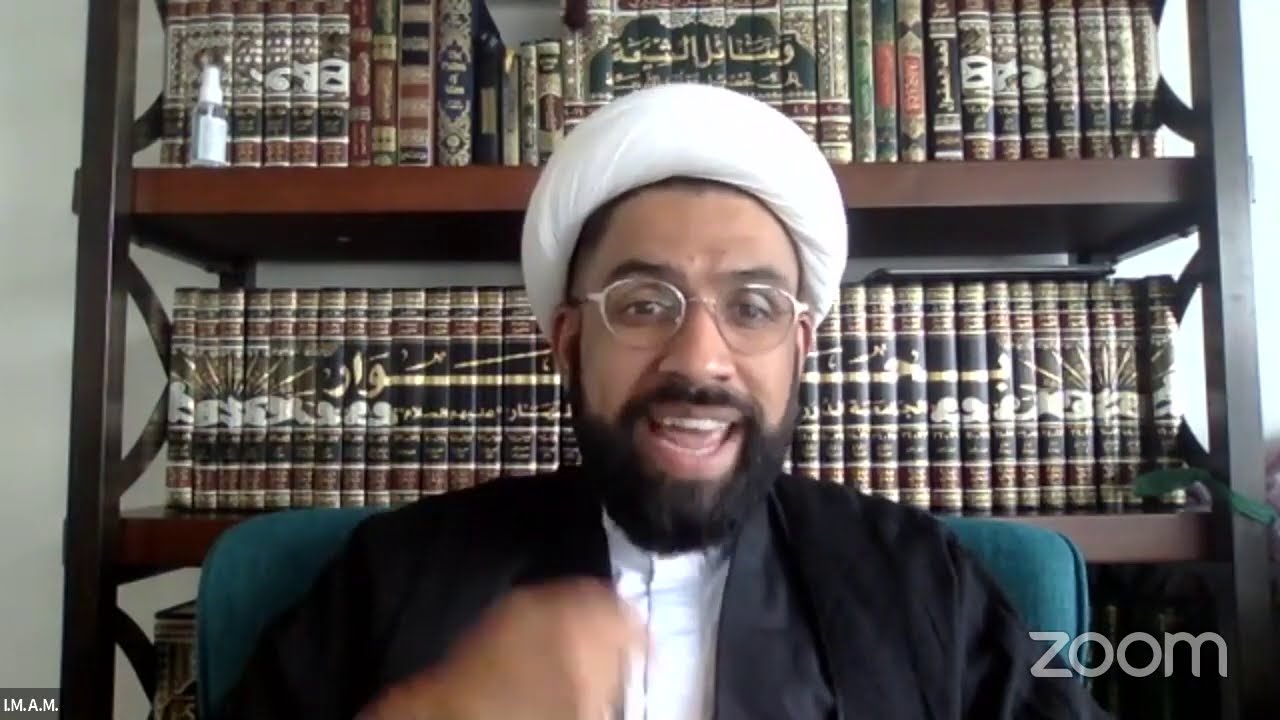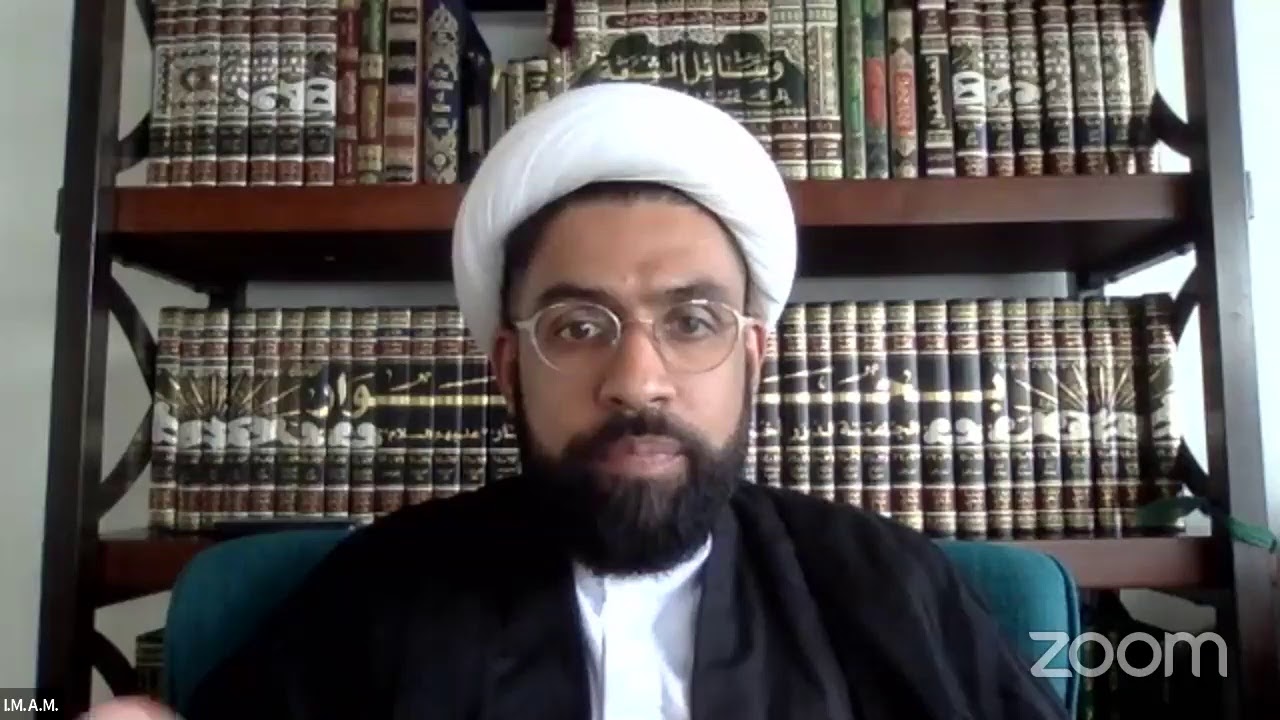Timeless Lessons From Karbala: Lesson 2/5 - Sincerity
A'udhu billahi min al-shaytaan Al-rajim. Bismillah Al-Rahman Al-Rahim. Wa bihi nasta'in. Wa as-salatu wa as-salamu 'alaa Sayyidina wa nabiyyina Muhammadin wa 'alaa ahli baytihi, at-tayyibin, at-tahirin. A'dhama Allahu ujuruna wa ujurakum bi masaa'ibina bi Sayyidina wa mawlaana Abi 'Abdillah al-Husayn 'alayhi as-salatu wa as-salam.
Dear sisters and brothers, we are in the second set of programming in regards to timeless lessons that we can learn from and take from the tragedy of Imam Al-Husayn alayhi as-salat wa as-salam on the second day here of Muharram.
And it's important for us to be in a state of intense grief and sorrow during the course of these days due to everything that has befallen the Household of the Messenger of God, Muhammad sallalahu 'alayhi wa aalihi wa sallam. And yesterday afternoon, we had the opportunity to speak about among the most important lessons that we can learn from and apply as we take insight and inspiration from Imam Al-Husayn alayhi as-salat wa as-salam and that is God-consciousness, the idea or the feeling of presence of our Creator at every opportunity that we have during the course of our lives.
We learn from Imam Al-Husayn as-salamullahi 'alayhi, that at every opportunity, at every moment, at every step and at every breath on the 10th of Muharram, he remained in a state of deep affection and love of Allah Subhanahu wa Ta'ala. And we gave the example of when Imam Al-Husayn 'alayhi as-salam within the midst of battle, the army of Umar ibn Sa'd they called out 'undhuru ilayhi la yubaali bil mawt'. Look at this Husayn, death is not at the forefront of his mind, he is not concerned about death. The only thing that he is concerned about 'alayhi as-salam is seeing and feeling and attaining proximity to his Creator.
Which is why the second lesson that I want to reflect upon really is a reminder to myself before any of my dear sisters and brothers who are viewing, is sincerity. We take a look at Imam Al-Husayn, when we take a look at the Prophet alayhi as-salat wa as-salam, when we take a look at the Imams of the Ahlul Bayt, peace and everlasting blessings be upon them, what makes them so unique and stand out is their intense sincerity. Meaning that they weren't again concerned with anything else other than attaining the pleasure of their Creator.
And sometimes during the course of our lives, it is really, really difficult and really, really challenging to isolate other external intentions during the course of the deeds that I am performing. For instance, when we are very young and we are taught how to pray, often times our reminder to pray comes from our parents, comes from our elder siblings or family members in the home or whatever it might be, and we pray, in other words, to satisfy them and it is ok as a tool for us to learn and for us to develop, it's fine.
Similarly, when we fast during the Holy month of Ramadhan, we learn the rules of fasting from authorities elder to us, and we don't necessarily like to fast because of how difficult and how challenging that it might be but we do so to please them and really to sort of push away the responsibility from our own selves.
But the question that we need to ask is, from our youth to where we are today, how exactly has that intention of mine really transformed and changed? Has it changed at all? Do I truly enjoy being in a state of prayers or in a state of worship or in a state of obedience to my Creator? Again, it takes time toward building to that state, and it is ok if you don't necessarily feel that way, it's not the time to self deprecate, so to say, but rather as an opportunity for self growth.
Upon reflecting upon Ahlul Bayt peace and everlasting blessings be upon them and we see the sincerity given by Imam Al-Husayn and his family members and his companions and Lady Zaynab alayha assalam and the like on the day of Ashura. It allows for us to sort of see the ultimate manifestation of sincerity to God and perfection when it comes to intentions in a way that we strive toward getting to that highest state and highest level.
Which is why in that famous narration that I have quoted from the Commander of the Faithful Imam Amir ul-Mu'minin Ali ibn Abi Talib 'alayhi as-salat wa as-salam, he calls out 'Ilahy, maa 'abaddtuka khawfan min naarik, wa laa tama'an fi jannatika, wa lakinni 'abaddtuka li annaka ahlan li-dhaalika.' He states 'O Allah! Oh, my Lord, I did not worship You out of fear of divine punishment, nor do I worship You out of the hope or the greed in attaining your rewards.'
We're not concerned about pushing away responsibility, nor do we only pray or do good things because we know that there is a tangible benefit for us at the end of it all. It's not a bad thing, i'is not necessarily a bad thing for us to pray or to fast or to do a good deed because we are afraid of punishment. Nor is it a really terrible thing for us to do if we go and we do a good deed like that of additional prayers or recitation of the Qur'an, or service in the majlis of Al-Husayn alayhi as-salat wa as-salam because of a desire for tangible reward. It's ok, it's why God talks about punishment, often times as a deferrent within the Holy Qur'an. And He speaks about specific types of reward that we get as well within the Holy Qur'an.
Otherwise why would God mention, for instance, that in paradise you will be sitting on reclined couches, you will be eating fruits that are so delicious that are unlike anything that we eat today? Why? Because again, God knows that there is a certain sort of enjoyment toward materialistic, tangible things during the course of life. It's ok, which is why we have these ahadith that tell us, you pray this prayer, and if you fast on such and such day you get X and Y and Z rewards because the human nature is to again find satisfaction in incentive.
But again, we not only want to do good deeds for the sake of paradise, we want to do it because we want to be the best of God's creations. 'Allaahummaj 'alni min ahsani 'abidika nasiban 'indak wa aqrabihim manzilatan minka.' 'O Allah allow for me to be the best of Your servants.' That is what we want from God.
So this is why Imam Amir ul-Mu'minin alayhi as-salat wa as-salam, he concludes, he states again 'I do not worship you out of fear of punishment nor out of hope in reward, 'Wa lakinni 'abaddtuka li bi annaka li dhaalik,' 'but rather I worship you O Allah because You are worthy of worship.'
This is a Lord that loves us and cares about us. And oftentimes we do not tell ourselves that enough or remind ourselves that enough. That Allah Subhanahu wa Ta'ala wants our growth, He wants our progress, He wants us to become the most perfect version of ourselves, He wants our success. He loves His creation. And all of a sudden, when you change your mindset into that approach you realize that, you recognize that why am I concerned with what everyone else thinks or why am I concerned with other people's opinions when it comes to my relationship with God? Of course I don't mean that I want you to be rude to other people in this regard but your relationship with Allah Subhanahu wa Ta'ala is between you and your Creator.
And as we have seen, unfortunately over the last several months, in the midst of the pandemic, covid-19 that we are living through. In this country, the United States, we see upwards of one hundred and fifty thousand deaths in the city of mine alone, New York City. Upwards of thirty thousand people in New York State died in the last several months and we realize just how real our own mortality is in light of everything that we are living through in this socio-political climate.
And what it does for us, is it reminds us that at the end of the day, that I am going to enter into a grave alone. Not to sound sort of cryptic or dark, but rather for us to just be very real with ourselves once in a while. And my relationship with Allah Subhanahu wa Ta'ala and how much I give in, in terms of sincerity during the course of my effort towards seeking closeness and proximity to Him is what I am going to be getting out from that relationship. And what I put forth is what Allah Subhanahu wa Ta'ala will return back to me.
And from the life and from the lessons of Imam Al-Husayn, from the tragedy of Karbala on the 10th of Muharram, Ashura, we learn this notion of sincerity from personalities like that of Al-'Abbas for when he goes near the water, he does not pick up that water or put it close to his mouth because he knows that his brother Husayn alayhi as-salam is thirsty.
We learn what sacrifice and sincerity means when Qasim looks to his uncle Husayn after Imam Al-Husayn alayhi as-salat wa as-salam tells all of his companions that they are going to be killed the very next day. And he stands up and he states 'Ya Aba 'Abdillah, wa ana min man yaqtal? And will I also be killed?' To which Imam Al-Husayn says 'Ya Qasim, kayfa al-mawtu 'indak? How do you see death?' To which he responds with that epic line ?Al-mawtu fiki Ya Aba 'Abdillah, ahla minal 'asl!- that death in your way is sweeter than honey'.
We learn sincerity when the companions of Husayn on the night of Ashura, one by one, in their chivalry and in their valour and in their bravery and in their courage stood in front of Imam Al-Husayn and stood in front of Zaynab salamullahi 'alayha and said 'That if they take our bodies and they kill us a hundred times, a thousand times and they shatter these physical, corporeal existences of ours across these planes, for you O Imam Husayn, one thousand times'. Because they recognize that sincerity to the Imam, devotion and dedication toward the grandson of the Messenger of God, sallalahu 'alayhi wa aalihi wa sallam means ultimate success with the Creator.
During the course of these days and nights of Muharram, let us be a people, a community who truly enlivens what we take from in terms of inspiration and the majlis of Husayn alayhi as-salat wa as-salam and the life of Husayn and the legacy of Husayn alayhi as-salat wa as-salam, in terms of some sense or segment of implementation.
In order for us to be a little bit more sincere in our prayers and our good deeds and our actions and our interactions and our relationships. For truly walking in the footsteps of Imam Al-Husayn alayhi as-salat wa as-salam is to sincerely dedicate ourselves to Allah Subhanahu wa Ta'ala.
We ask Allah Subhanahu wa Ta'ala for tawfiq. Wa al-Hamdulillah Rabb Al-'Aalameen, wa salli-Llahumma 'alaa Muhammad, wa 'alaa ahli baytihi, at-tayyibin, at-tahirin.






